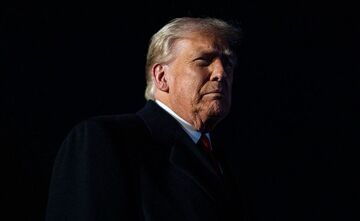Tehran(Bazaar): Mark Grabowski, Associate Professor Adelphi University in interview with Bazaar News Agency said: Cryptocurrency potentially offers a more inclusive and equitable economy.
He believes that cryptocurrency provides more transparency and security.
Following is the full text of the interview:
Bazaar: What is the effect of using cryptocurrency in improving the economy?
Grabowski: Cryptocurrency potentially offers a more inclusive and equitable economy. Across the world, many people are not able to fully participate in the global economy either because they lack access to the on and off ramps, they’re discriminated against, or governments and financial institutions restrict their financial freedom. Because cryptocurrencies such as Bitcoin are open-access and decentralized, anyone anywhere in the world can send, receive and make payments using it at any time.
In addition, Bitcoin was designed to fix the systemic issues that plague our monetary system.
First, it offers better value long-term. Unlike fiat, cryptocurrency such as Bitcoin can’t be created out of thin air, and only a limited number will ever be produced, which makes it a scarce asset that’s unlikely to depreciate. In fact, Bitcoin has been by far the best-performing financial asset since its launch in 2009. And, currently, investing in crypto assets offers much higher APYs than saving your money in a bank. In the U.S, you’re lucky if your bank gives you 1% per year on your savings — and that won't keep up with inflation. But, in crypto, you can get 20% a year staking stablecoins pegged to the U.S. dollar or 10% staking cryptocurrencies such as Bitcoin or Ethereum.
Second, it’s efficient. Cryptocurrency transactions can be faster, less costly and more secure than fiat transactions because they don’t utilize a third party, such as a bank. Unlike banks – which typically operate 9 to 5, charge fees for transactions, limit how much money you can withdraw from an ATM or wire to someone and sometimes take days to process deposits – cryptocurrency allows you to send and receive an unlimited amount 24-7 anywhere in the world at little or no cost.
Third, it’s uncensorable. Instead of being regulated by bureaucrats behind closed doors like government-backed currencies, cryptocurrency is regulated by mathematics and cryptography. There is no headquarters or central place for cryptocurrencies such as Bitcoin, which makes it nearly impossible to shut down and stop. Transactions are also more private. At a time when governments around the world, including many Western democracies, are engaging in surveillance, censorship and lockdowns, being able to engage in commerce off the grid is becoming more appealing to people.
Finally, cryptocurrency provides more transparency and security. All transactions are recorded on the blockchain, which is a publicly viewable ledger. Because the data is stored in a fully decentralized manner across a global network of computers instead of a centralized database, there’s no single point of failure. This makes blockchain records more secure than banks and less vulnerable to fraud, tampering or a systemwide crash. This is why Elon Musk recently told the U.N. that if he donated to them to fight against hunger, the funds needed to be dispensed over the blockchain to ensure accountability and limit the potential for corruption.
Bazaar: What has been done to legalize cryptocurrencies in countries?
Grabowski: Cryptocurrency is so new that it does not fit neatly with existing laws; authorities around the world are just beginning to grapple with its mechanics, studying its impact to determine the best way of regulating it.
Some countries have been very progressive and actively sought to become crypto-friendly. The government of El Salvador, for example, has invested heavily in Bitcoin and even passed a law in 2021 giving Bitcoin the status of legal tender.
Other countries, including China, have banned cryptocurrency altogether.
Meanwhile, most countries, including the U.S. government, have mostly taken a hands-off approach so far. But they’re in the process of deciding how to regulate it. More regulations are definitely coming worldwide.
Bazaar: Why do some countries react more strongly to the use of cryptocurrencies?
Grabowski: Cryptocurrency is challenging the legacy financial system. As U.S. Senator Thomas Carper astutely observed in 2013, “Virtual currencies, perhaps most notably Bitcoin, have captured the imagination of some, struck fear among others, and confused the heck out of the rest of us.”
Cryptocurrency is viewed by many financial experts as the latest phase in the evolution of money and some government officials recognize the once-in-a-generation wealth building opportunity cryptocurrency presents, and do not want to miss out.
But it is also perilous. Market volatility, scams and hacks have given rise to concerns that it may be used to defraud financially illiterate users. Because it is pseudonymous and cannot be censored, cryptocurrency is often exploited by criminals for money laundering, terrorism financing and cybercrime. Hence, it creates a unique regulatory quandary for governments: how can they allow access to financial services through cryptocurrencies while also preventing them from being utilized for illegal activities?
I think there's also a fear of change. The old way of doing things has worked out very well for some people, particularly the boomer elites who control governments and financial institutions around the world. So, they may view cryptocurrency as a threat to their power and the status quo, especially since they probably don't fully understand the technology and zeitgeist behind it. Some of these skeptics have started to come around and realized, if you can't beat them, might as well join them. Others, however, remain stubbornly opposed, and are pushing for strict regulations.
















نظر شما